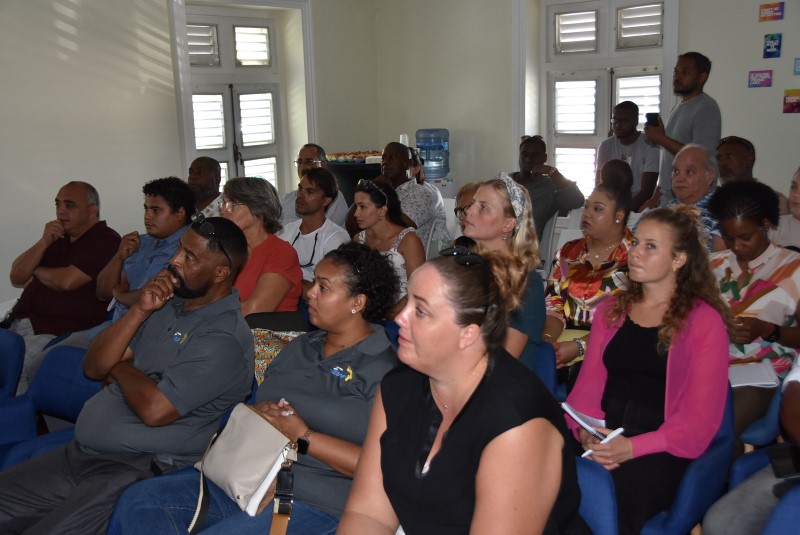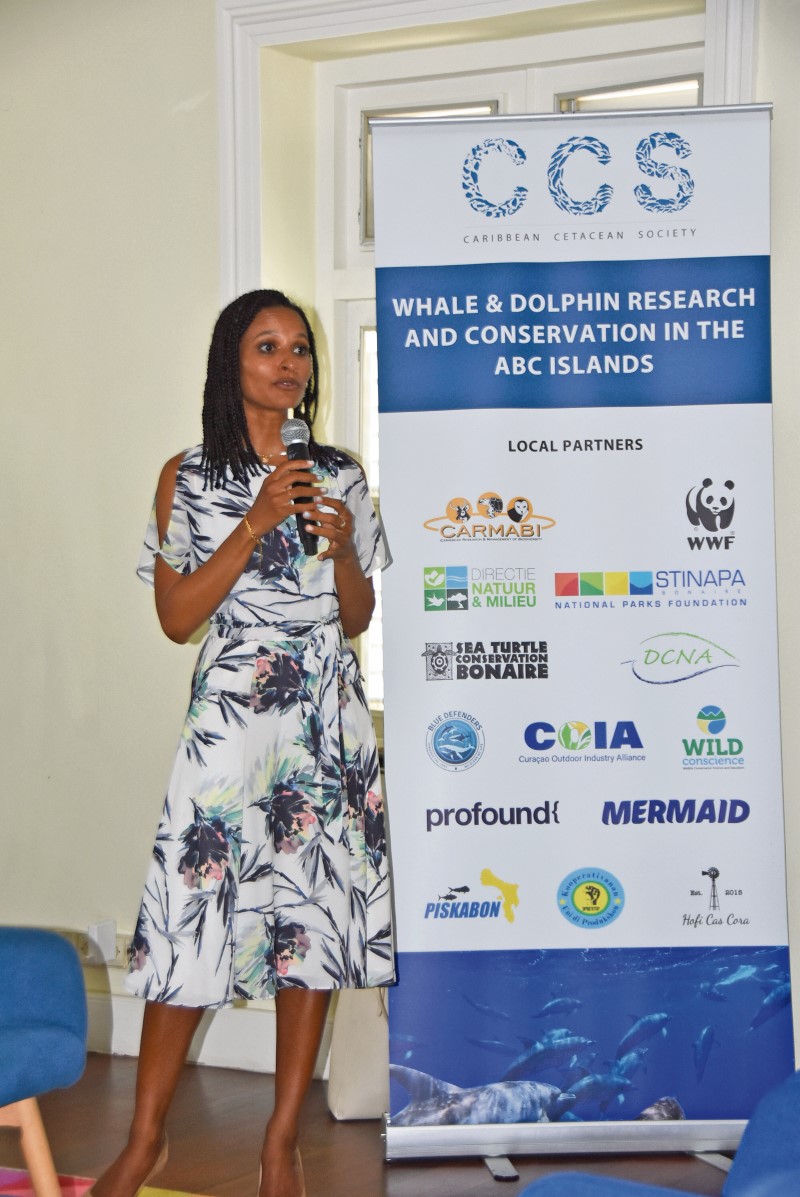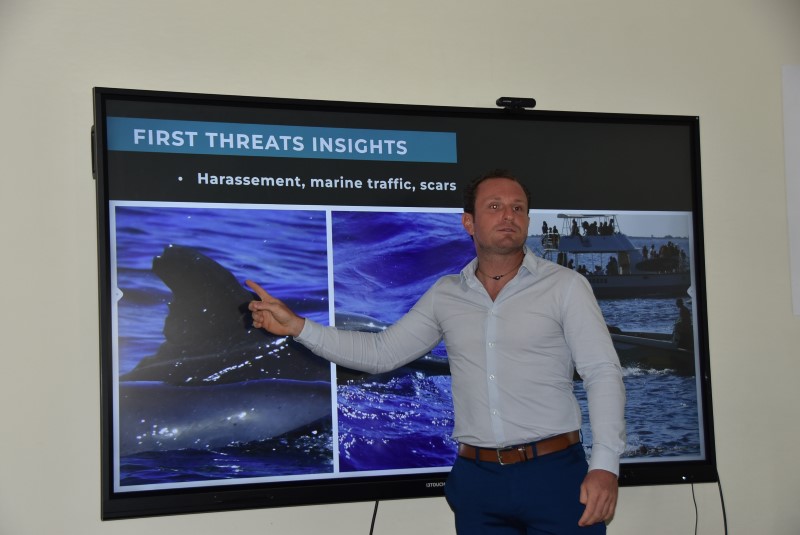Protection more urgent than ever
From one of our suppliers
Willemstad – The Caribbean Cetacean Society (CCS) has presented the (preliminary) results of a two-year study of whales and dolphins around Aruba, Curaçao and Bonaire.
At the symposium, where CCS Director Jeffrey Bernus and CCS Regional Coordinator Stacey Mac Donald presented key findings, a key message was the urgent need for collective action to ensure the survival of these marine mammals.
In particular, whales play a decisive role in combating climate change, as they produce four times more CO2 (carbon dioxide) than the Amazon jungle collects. In addition to their huge storage of carbon dioxide, they have a direct impact on the production of phytoplankton, organisms that are responsible for at least 50 percent of the oxygen in the atmosphere.
However, research by CCS, a non-profit organization focused on the conservation of whales and dolphins in the Caribbean, revealed significant threats to these marine mammals. Serious disturbances, inconveniences caused by ship traffic, collisions, physical damage to propeller blades and fishing gear, entanglement in fishing nets, plastic pollution and active hunting were documented, which emphasized the urgent need for protective measures. “The ABC Islands are a crucial habitat for whales and dolphins to rest, breed and feed, but they are under threat; it is our responsibility to protect them. I hope that together we can create new protected areas with adapted management plans and continue this important research in the long term so that future generations can also to benefit from these iconic species,” said CCS Director Bernus. The Minister of Health, Nature and Environment (GMN) also agreed that nature conservation is necessary. “We will use this information and you can count on my support in this matter.” assured.
Research results
Over a two-year period, CCS conducted two major field trips, training 46 participants from 14 local organizations. So far, they have observed 47 groups of nine different species of whales and dolphins.  The study found that some bottlenose dolphins (a species of dolphin) move between Bonaire’s Yarari Nature Reserve and the waters of Curacao, indicating an important ecological connection between these islands. In addition, CCS found that pilot whales living in the waters off Bonaire migrate to the coast of Venezuela. These findings highlight the importance of regional cooperation: conservation of whales and dolphins requires joint efforts throughout the Caribbean. Other notable findings include the identification of over twenty individual sperm whales that had not previously been surveyed in this area, and a large pod (estimated at 150) of striped dolphins, a species that CCS has documented only once before in four years. research in the Caribbean. The study also highlights the important childcare function of these three islands for several species of marine mammals, as numerous juveniles of dolphins and whales were observed. Since only one in three baby whales survive, much more action should be taken. The Caribbean is home to more than 33 of the 90 species of whales and dolphins known worldwide, marine mammals that are legally protected in Aruba, Curaçao and Bonaire.
The study found that some bottlenose dolphins (a species of dolphin) move between Bonaire’s Yarari Nature Reserve and the waters of Curacao, indicating an important ecological connection between these islands. In addition, CCS found that pilot whales living in the waters off Bonaire migrate to the coast of Venezuela. These findings highlight the importance of regional cooperation: conservation of whales and dolphins requires joint efforts throughout the Caribbean. Other notable findings include the identification of over twenty individual sperm whales that had not previously been surveyed in this area, and a large pod (estimated at 150) of striped dolphins, a species that CCS has documented only once before in four years. research in the Caribbean. The study also highlights the important childcare function of these three islands for several species of marine mammals, as numerous juveniles of dolphins and whales were observed. Since only one in three baby whales survive, much more action should be taken. The Caribbean is home to more than 33 of the 90 species of whales and dolphins known worldwide, marine mammals that are legally protected in Aruba, Curaçao and Bonaire.
A milestone has also been CCS’s contribution to the establishment of a new marine protected area in the Dominican Republic, covering 30 percent of its territorial waters. The island thus fulfills the promises of the Global Biodiversity Framework to achieve this goal by 2030.
Photo of the Olympic Games

